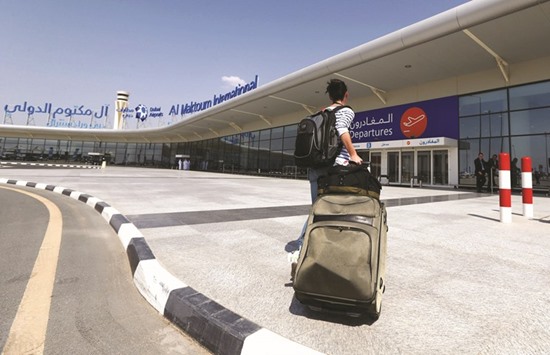The UK’s government’s decision to expand London’s Heathrow airport is about “50 years too late,” according to the chief executive officer of Dubai Airports, which is building one of the world’s largest aviation hubs.
“Unfortunately the bureaucracy in the UK seems to be the world’s most refined and the world’s most comprehensive when it comes to strangling infrastructure projects,” Paul Griffiths told Bloomberg TV in an interview. “Whether they’ll ever build it or not we’ll just have to wait and see, but I don’t think it will be in the next 10 years.’’
Prime Minister Theresa May’s government gave the green light to the £16bn ($20bn) construction of a third landing strip at Heathrow amid a crunch in UK flight capacity. The first full-length runway in southeast England since World War II will allow the 70-year-old airport to handle 135mn passengers a year. The government is leaving open questions about how the runway would be funded and how long it will take to get built.
While approving the runway was “absolutely the right decision,” the UK’s track record on delivering projects on time and within budget isn’t “great,” Griffiths said. However, the project is vital to London and Heathrow will be able to “use every ounce of capacity that the runway will create,’’ he said.
Griffiths is leading the expansion of Dubai’s Al Maktoum International Airport, which is set to be the world’s largest, with an ultimate capacity target of 220mn passengers. The master plan for the airport’s second phase has been approved and the detailed-design work is under way, he said. Middle Eastern airports such as Dubai have been able to grow without being subject to similar opposition to capacity increases such as at Heathrow or limitations on night flights.
Al Maktoum, which currently handles 7mn passengers a year, will see its capacity jump to 26mn in 2017. Emirates airline is set to shift its operations to the new airport when expansion is completed, while budget carrier FlyDubai is expected to move to the new hub by 2017.

Al Maktoum International Airport, which currently handles 7mn passengers a year, will see its capacity jump to 26mn in 2017
